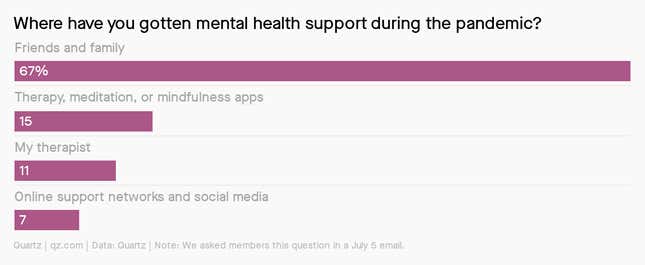{{section_end}} {{section_start}}
🤔Here’s Why
1️⃣ Diversity efforts have failed to make the corporate world more inclusive. 2️⃣ Anti-racism requires more of companies than most diversity initiatives—and is more ambitious. 3️⃣ Literature and TV writers’ rooms may offer outside-the-box ideas about how to challenge systemic racism. 4️⃣ The corporate world can also look to South Africa for lessons on what’s at stake. 5️⃣ Consumers expect multinationals to live up to their values wherever they do business.
📝 The Details
1️⃣ Diversity efforts have failed to make the corporate world more inclusive.
Many of the businesses currently facing criticism for racist practices have long pledged to devote themselves to furthering diversity and inclusion. Clearly, those efforts aren’t working.
Multinational companies are being called out and interrogated. Consumers and employees are demanding more radical change. Research is highlighting how past inclusion efforts have failed. Underpinning these movements is the knowledge that diversity can help businesses thrive.
2️⃣ Anti-racism requires more of companies than most diversity initiatives—and is more ambitious.
Diversity, equity, and inclusion efforts “acknowledge that current structures are not set up inherently to create equitable workplaces” and are “designed to re-right that balance,” says Evelyn Carter, a social psychologist and a director at Paradigm, a diversity and inclusion consultancy. The anti-racist movement is about thinking even bigger: it wants “to do away with the structures that exist that produce those disparities.”
For this field guide, Quartz took a look at how various kinds of workplaces—from an international insurance behemoth to a restaurant—are trying to enact systems that lead to greater equality. Their practices range from creating race-based caucuses to tying executives’ compensation to meeting diversity targets to challenging common hiring practices that uphold the status quo.
3️⃣ Literature and TV writers’ rooms may offer outside-the-box ideas about how to challenge systemic racism
.
Countless organizations are newly engaging with the question of how to have meaningful conversations about race and build more inclusive cultures. One unconventional option might be to start with group discussions of novels and short stories—which, while no substitute for activism, can help build empathy for others’ experiences. Another possibility? Try emulating the writers room of HBO’s Watchmen, which created one of the most groundbreaking shows in recent memory by prioritizing an environment of psychological safety.
4️⃣ The corporate world can also look to South Africa for lessons on what’s at stake.
Almost three decades of pained discussions, affirmative action quotas, and weak diversity programs have failed to shift stark imbalances in the country’s economy and industries. Black people comprise only 10% of CEOs and income inequality has worsened. Why hasn’t South Africa made more progress, given that race and racial justice have been a consistent topic of discussion? The solution might lie in the demands of a younger generation, who wish to return to an understanding of the fight against racism as an active and ever-present struggle.
5️⃣ Consumers expect multinationals to live up to their values wherever they do business.
In the weeks since protests swept across the US and other countries over the death of George Floyd, a long list of companies have taken a stand against police brutality. But as they scramble to voice their support for the fight against racial inequality in America, an inconvenient truth has surfaced: The same companies are keeping quiet on injustice in other countries, especially when it comes to China.
📚Read the field guide
What an anti-racist workplace looks like
Why diversity initiatives fail
Lessons on building an inclusive culture from HBO’s “Watchmen” writers room
The case for using literature to kickstart conversations about race at work
How to have more productive conversations about race in the workforce
Multinational companies can’t be woke in the US and silent in China anymore
Is your business model anti-racist?
Some common diversity initiatives actually decrease diversity, data show
What the corporate world can learn from South Africa’s post-apartheid struggles
📣 Sound off
Last week we asked what your primary source of mental health support has been during the pandemic, as part of our field guide on mental health’s turning point. Here’s what you said:
